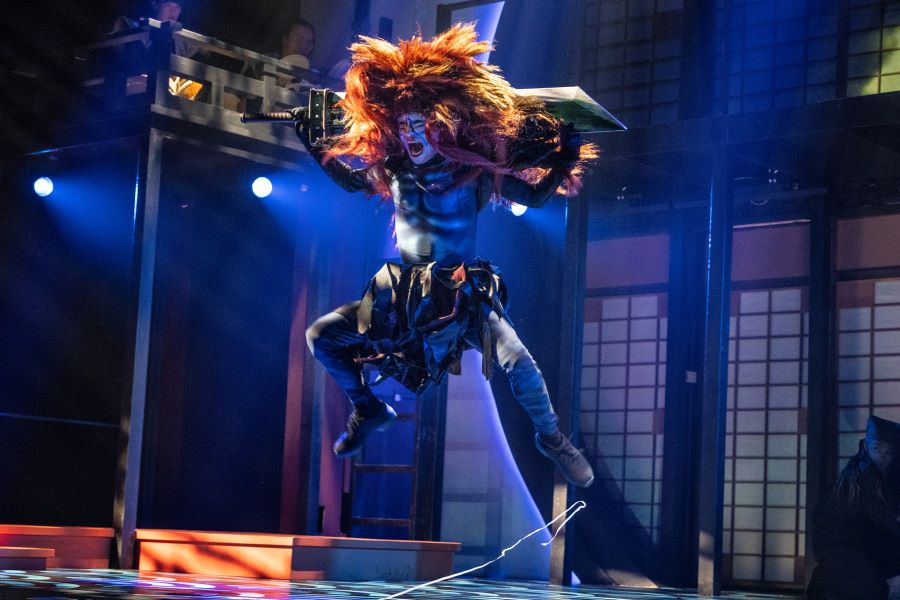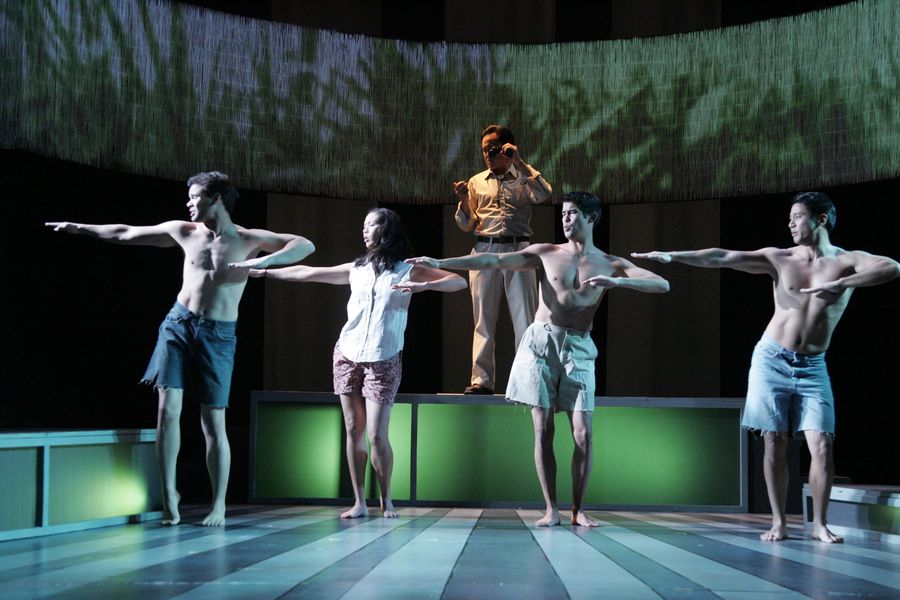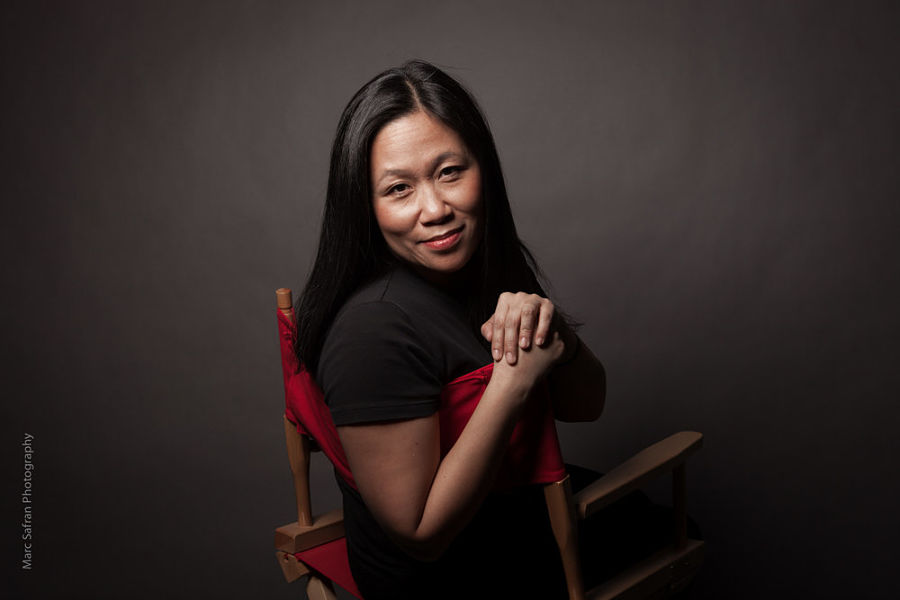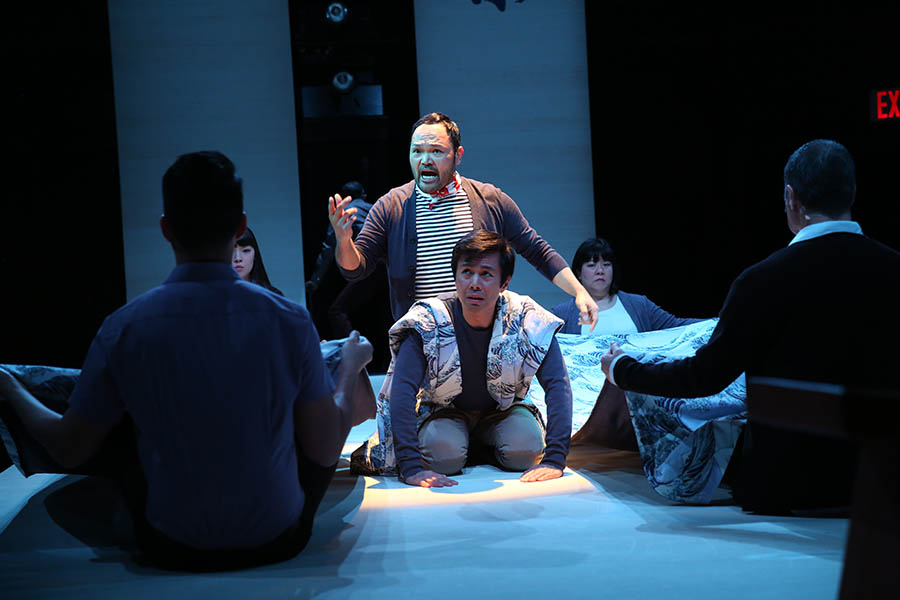“Pardon me, I was there,” sings an old man near the end of the first act of Pacific Overtures. He’s addressing the show’s narrator, called the Reciter, who is recounting the fateful day in 1854 when a treaty was hammered out between the U.S. and Japan to “open” the hitherto isolated island to Western trade—a negotiation of which there is no official Japanese account.
The epic song that ensues, “Someone in a Tree,” is one of Stephen Sondheim’s greatest achievements, a meditation on the subjectivity of memory that swells to include the recollections of a young boy—the old man’s younger incarnation—who could see but not hear the treaty talks through a window from a nearby tree, as well as an armed warrior stationed secretly under the treaty house who could hear but not see them.
Gedde Watanabe was there, and now he’s back. The actor who made his Broadway debut in multiple roles, including the young boy in the tree, in the musical’s 1976 Broadway premiere, is now playing several roles, including that young man’s elder incarnation, in East West Players’ new revival of Pacific Overtures, which opened last week in Los Angeles and is running through Dec. 1.
“It’s a little beguiling to revisit,” said Watanabe in a recent interview, referring not only to “Someone in a Tree” but to the entire show, for which he was originally plucked by casting director Joanna Merlin from notoriety as a street singer in San Francisco, and which he hasn’t revisited since, in part to preserve his memory of that formative experience. He confessed to me that as a 21-year-old, he didn’t fully understand the song, even wondering aloud to Sondheim at one point if it might be too long (he’s grateful now that he wasn’t fired for his temerity).
Incomplete understanding, of course, is one of the song’s subjects. A few years after he performed it, Watanabe recalled, he had a bit of an epiphany.
“I went to see the St. Patrick’s Day parade in New York City, and I couldn’t see it, so I climbed a tree,” Watanabe recalled. “I went up that tree and the lyrics came back to me, and I remember I was in tears. I remember writing a letter to Stephen about that.”
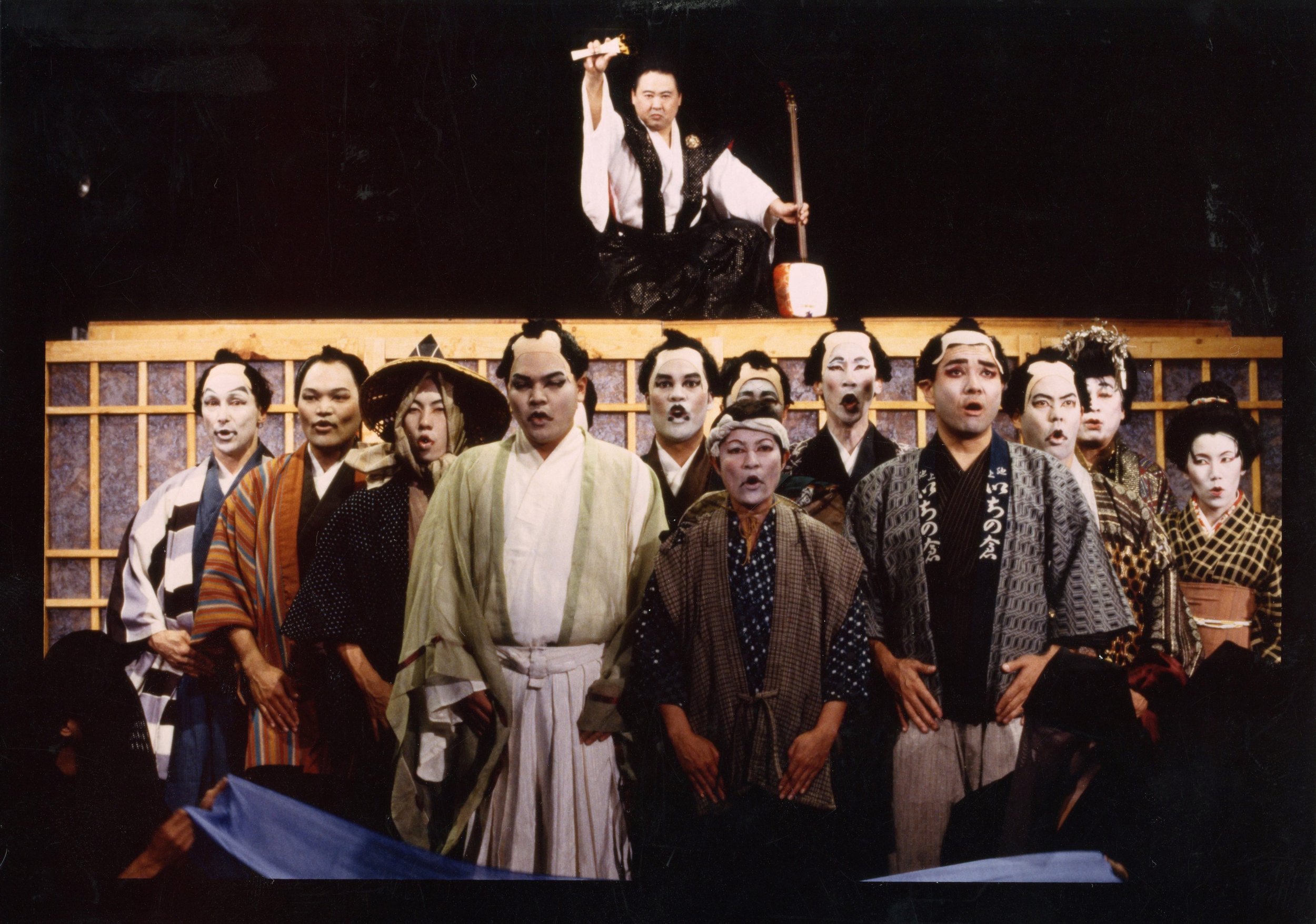
The threads among East West Players and the Sondheim musical, written with librettist John Weidman, are numerous, long-standing, and uniquely braided—another testament, you might say, to the show’s themes of interdependence and cultural exchange. To start with, the original production employed an all-Asian American cast full of performers who had cut their teeth at the L.A. company, not least EWP’s founder, Mako, who originated the role of the Reciter and then directed and starred in a production at EWP in 1979. The company—which has made musicals, and particularly Sondheim musicals, one of their recurring specialties (it’s the theatre where I saw my first Sweeney Todd and Merrily We Roll Along)—opened its midsize space in L.A.’s Little Tokyo in 1998 with a stunning revival of Pacific Overtures, directed by then-artistic director Tim Dang.
Dang is back from semi-retirement to direct the new revival, which Los Angeles Times critic Charles McNulty has already hailed as “the most impressive production I’ve seen anywhere all year.” I was pleasantly surprised to learn that Dang wouldn’t be resting on his laurels or simply rehashing his take from a quarter century ago.
“I wanted to bring back the elegance and opulence and spectacle,” said Dang, who has employed a Kabuki consultant on both productions (David Furumoto and Kirk Kanesaka, respectively). But he had some more au courant cultural touchstones in mind this time as well. “There are nods to anime and manga in the show that will hopefully bring in or introduce a younger audience to Sondheim’s work,” he said. These will show up in David Murakami’s projections, Dang noted, as well as in a costume choices: the American leader, Commodore Perry, will have demon horns, and the geishas of “Welcome to Kanagawa” will be styled (by costume designer Naomi Yoshida) to evoke a popular Japanese video game series called One Piece. “It still has the Japanese look, but with a very pop flavor,” as Dang put it.
In the role of the Reciter is Jon Jon Briones, best known for starring as the Engineer in the 2016 Broadway revival of Miss Saigon, who more recently starred opposite Watanabe in EWP’s revival of La Cage Aux Folles and as Hermes in Broadway’s Hadestown. Indeed, apart from Miss Saigon, Briones said he hasn’t performed in many of the musicals he calls, somewhat drily, “the Asian classics”—i.e., musicals by white authors with Asian settings and characters, like South Pacific, Flower Drum Song, The King and I, and Here Lies Love.
Of course, these shows are often criticized for their Orientalist takes on these stories. I wondered, where does Briones think Pacific Overtures—which Weidman and Sondheim specifically set out to tell from the Japanese perspective—sits in that uneasy canon?
“There is always a problem in the story of Asian people being told by white people,” Briones said. “I believe that’s why we remount these shows, so that we can correct some of that. But, as with Miss Saigon, the history of that place and Americans in Pacific Overtures is so tied together that it’s kind of necessary to have both brains, Western and Asian brains, intertwined and working together on this.”
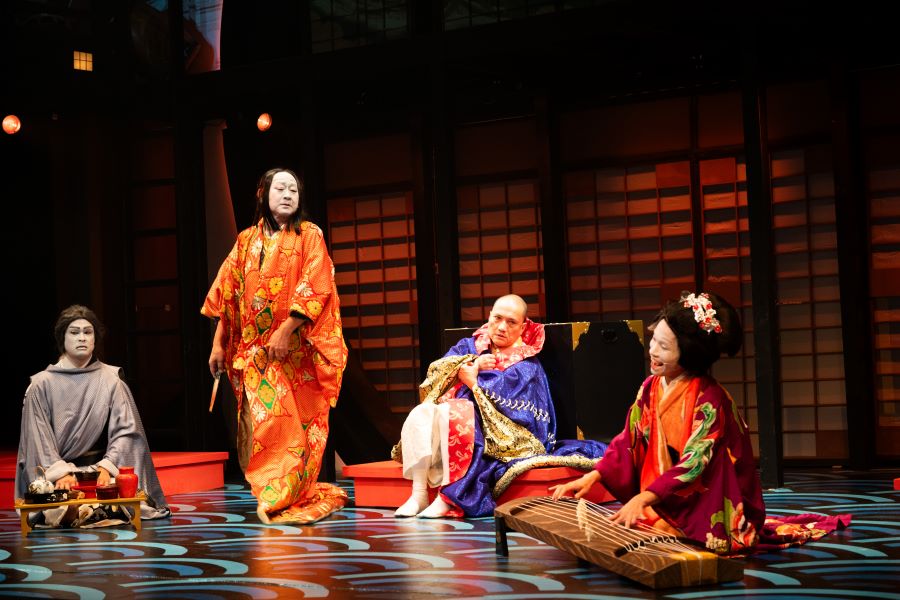
It’s a trade-off that’s been on the mind of Lily Tung Crystal, EWP’s newly instated artistic director, who like many Asian American theatre folks got her start in many of the aforementioned musicals (and wrote a definitive piece on the so-called “Chop Suey Circuit” for this magazine).
“Those shows are all successful to different degrees, and in that range, I think Pacific Overtures is more representative of our community than others,” said Crystal. “Even though it’s written by non-Asian people, through Tim’s work with Kabuki and cultural consultants, we’ve been able to reappropriate it for ourselves.” Book writer Weidman has also agreed to some minor text changes, as well as to updates to the final song, “Next!,” which, in touting the contemporary emergence of Japan on the world stage, now includes references to star Dodgers pitcher Shohei Otani, even to L.A.’s Little Tokyo itself.
While Tung Crystal is happy to kick off her time at EWP with this return to the some of the company’s roots, she intends it to signify more than mere nostalgia.
“I’m excited about this piece because it’s so meaningful to East West Players historically,” she said. “But I also hope that this work inspires, not only Asian American playwrights to write more Asian American musicals, but also other institutions who aren’t East West Players to produce more musicals written by Asian American writers.”
There have been few on Broadway, and most them in recent years: Jay Kuo, Marc Acito, and Lorenzo Thione’s Allegiance; Jason Kim, Helen Park, and Max Vernon’s KPOP; the currently running Maybe Happy Ending, by Will Aronson and Hue Park. There’s also David Henry Hwang and Jeanine Tesori’s brilliant meta-musical Soft Power, Lauren Yee’s Cambodian Rock Band, and two shows that premiered in recent years at Theater Mu in Minneapolis when Tung Crystal was artistic director there: Jessica Huang and Jacinth Greywoode’s Blended 和 (Harmony): The Kim Loo Sisters and Katie Va Vang and Melissa Li’s Again.
You might think of this production as a first course. Or, if you will, as an overture.
Rob Weinert-Kendt is editor-in-chief of American Theatre.
Support American Theatre: a just and thriving theatre ecology begins with information for all. Please join us in this mission by joining TCG, which entitles you to copies of our quarterly print magazine and helps support a long legacy of quality nonprofit arts journalism.

